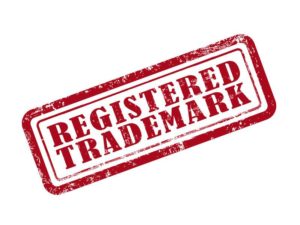 If you’ve just launched a technology start-up and you’re preparing to bring your goods or services to market nationally or globally it’s important that you take steps to protect and register trademarks you’ll need to grow your company into a national or global brand. Trademarks and service marks identify the source of goods and services, and distinguish them from those manufactured, sold or offered by others. Trademarks represent quality assurance and the goodwill of a business.
If you’ve just launched a technology start-up and you’re preparing to bring your goods or services to market nationally or globally it’s important that you take steps to protect and register trademarks you’ll need to grow your company into a national or global brand. Trademarks and service marks identify the source of goods and services, and distinguish them from those manufactured, sold or offered by others. Trademarks represent quality assurance and the goodwill of a business.
A trademark is important because it assists consumers in making an informed purchase about the goods or services they elect to consume. A trademark allows your company to enjoy the benefit (or detriment) of your reputation, while preventing others from free riding on your goodwill.
In the United States, trademark rights are based on using a mark in the sale of goods or the rendering of services in commerce. There are two primary sources of trademark rights in the United States. Common law rights are based on use, and can only be established in the particular geographic areas where the mark is actually used in commerce. Common law trademark rights are as old as the Republic itself. Federal registration of trademarks, which provides nationwide rather than more narrow geographic rights, is found in the Lanham Act, which was enacted in 1946, and depends on your use or intent to use a trademark in interstate commerce.
Common Law Trademark Rights & Their Limitations
Common law rights attach as soon as you begin using your mark as an indicia of source for a good or service, and that good or service is actually sold or provided to consumers. Much like a registered trademark, a common law trademark can use words or symbols, images, graphics, or a combination thereof, to signify the source of your product or service. It’s advisable to use the notice symbol “TM” or “SM,” which indicates that you claim trademark rights in that word, logo or symbol. Common law trademarks provide certain enforcement rights within the geographic area where you use the mark. And, if a competitor’s mark is held to be “likely to cause confusion,” a court may enjoin such use within your geographic territory, but a similar mark can probably be used in other geographic areas. The marketing of goods and services via the Internet, of course, complicates the utility and enforceability of common law rights in a trademark.
Because actual use is required to obtain common law rights, you will have to invest a great deal of time and money in a potential mark before obtaining any legal rights. During that same period of time a third party may acquire rights, exposing you to liability upon launching your goods or services. Under the federal registration scheme, you can file application for registration based on the bona fide intent to use the mark in interstate commerce. Filing the application provides a constructive, nationwide priority date, provided you eventually register the mark. Before a registration will issue, though, you must prove to the Trademark Office that you have begun using the mark. Unlike patents or copyrights, trademarks can have unlimited duration if they are continuously used, however, the registrations must be renewed periodically. Additionally, trademarks are “territorial,” that is, trademark rights must be obtained separately in each foreign jurisdiction, many of which adopt a strict “first to file” rule on priority of rights.
Federal U.S. Trademark Registration Advantages
Federal U.S. Registration affords several advantages, and is a much more robust form of protection when compared to common law rights. Upon receiving your registration you may use the ® symbol on your goods or services. Registration provides constructive notice to the public of your claim of ownership of the mark. It provides a legal presumption that you own the mark and thus have the exclusive right to use it nationwide on or in connection with the goods and services listed in the registration. Federal registration places strict limits on any legal bases a third party might use to challenge the mark’s validity after 5 years. Registration provides you with the ability to bring a legal action to enforce your rights in the mark in federal court, and collect statutory damages in the case of counterfeiting your goods. Federal registration also gives you a legal basis to obtain registration in foreign countries. It also gives you the ability to file the U.S. registration with the U.S. Customs Service to prevent importation of infringing foreign goods.
Deciding whether to register your new company’s trademarks is an important business decision, and the benefits for registering a trademark with the United States Patent and Trademark Office are generally well worth the time and effort to do so.
